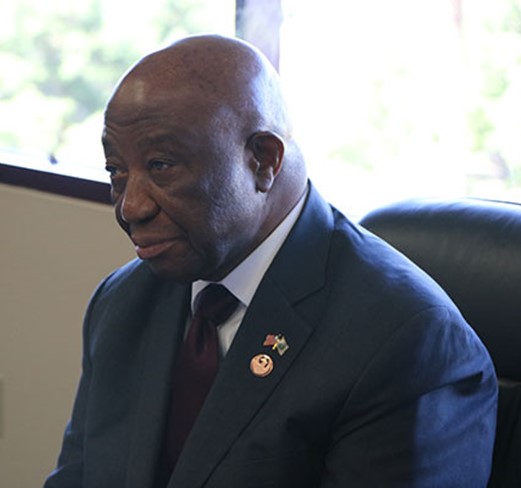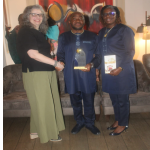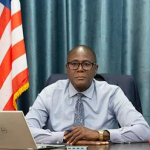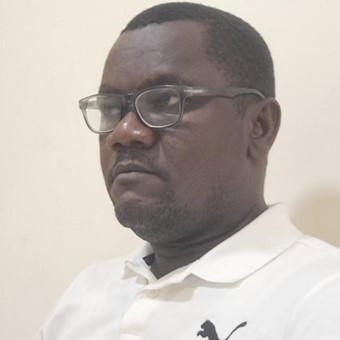By George P. Koon, LLD
In 2017, George Weah resoundingly defeated incumbent Vice President Joseph Boakai to the bewilderment of Liberia’s prominent intelligentsia. President Weah won the run-off election with 61.5 percent of the vote—albeit the former footballer was ill-prepared for the fierce, treachery, and evolving ruthlessness of Liberian politics—congruently, he lacked the virtù and fortuna.
Machiavellian virtù denotes a set of personal and intellectual characteristics that princes must cultivate to rule effectively—as such, ploughing a degree of “flexibility” is key. The ruler, in contemporary politics or liberal democracies, the president must be prepared to adapt their behavior consequently during his administration—and be willing to engage in “good” behavior depending on the political circumstances that may befall him.
Fortuna, on the other hand, refers to all the circumstances that preceded his ascendency, the characteristics of time, high level of unemployment, criminal activities, drug abuse, corruption, and a culture of impunity. Weah was a weak president who allowed corruption to endure, a culture of immunity to proliferate, and poverty to throttle ordinary Liberians.
Despite a disastrous and failed first term, Mr. Weah sought to exploit Liberians’ sympathy and “ostensible purity,” for a second term. Modern-day elections are based on a vision—for an incumbent president, his campaigns must be formulated on the combination of previous record while in office and a vision for a second term. Mr. Weah lacked both an articulated record for his six years of governance and a cogent vision for Liberia moving forward.
Some members of the Congress for Democratic Change, the former president’s party, propound some de minimis achievements by the Weah government: the construction of a sports park, the construction of an asphalt road to New Kru Town and other parts of the country—yet Liberia still has the worst roads and remains the dirtiest country compared to Afghanistan. Second, they argue that Liberia’s economy grew by 4.8 percent in 2022 under Weah, following a strong rebound in 2021. Taking on these arguments is simple: First, statistics are not feelings, and Liberians did not feel these economic statistics or growth.
The Weah administration had many problems, but the one to be considered here is that Liberians failed to perceive the economic growth and, therefore, failed to give the government credit for this accomplishment. More so, the significance of this failure is that Liberians believe one of the government’s functions is to control prices, attract foreign investment, provide jobs, be just and moral.
According to the Global Finance Economic Data in 2023, Africa’s oldest republic was ranked among the poorest countries in the world for many years. World Bank data show that more than 80 percent of Liberia’s population of 5 million still faces moderate or severe food insecurity.
Drug use is rampant among the jobless youth—officials in the Weah government were often accused of smuggling drugs into the country for quick cash. Power supply is unreliable across the forested countryside, and potholed roads hinder travel. In 2022 Liberia was ranked poorly on Transparency International’s corruption index, coming in 142nd out of 180 countries.
The Joseph Boakai Unity Party was the lesser of two evils vying to sway the Liberian people. Boakai is not impeccable neither should he be absolved for the suffering of the Liberian people. Boakai served 12 years as vice-president under Ellen Johnson Sirleaf. After pledging to fight corruption in 2005, the Sirleaf-Boakai government failed to take any action against some 20 ministers accused of corruption by an independent watchdog.
But Boakai has another mulligan. Here is what the new Boakai-Koung government can do to avoid being a one-term government or from facing a crisis of legitimacy: the new government must articulate a clear and compelling vision for their presidency–placing Liberians and development above everything else. Public perception and how Liberians feel would decide whether Boakai would get a second term.
Correspondingly, unexpected events have the ability to stimulate people to leap to the threshold of perception. Weber’s Law, a basic principle of perception, explains this. According to this principle, “sensitivity to changes in magnitude along a given physical dimension decreases when stimulus magnitude increases.” The increment needed to detect a change is smaller when measured against weak than strong stimuli. Experiments show that people can more easily tell a second sound is louder when the initial sound is soft. In this case, the second sound need not even be loud because the threshold of perception is low. However, if the initial sound is already loud, people will find it more difficult to notice that a second sound is actually louder. What holds for sound also holds for sight. Ganel, Chajut, and Algom imply this principle holds for perception in general. Weah placed the loyalty of his sycophants above qualification; thus, failing to combat the fortuna of his government, corruption, poverty, and crime.
Second, Boakai must show virtù to implement his vision. He must develop the skill of speaking to the Liberian people and updating them with tangible evidence of what his government has achieved and where his government intends to take the country to avoid a crisis of authority, crisis legitimacy, and crisis of resilience. Under these conditions, Liberians would be inclined to offer him a second term.
About the Author
George P. Koon, LLD., is a graduate of the A.M.E. Zion Academy on Benson St, Monrovia, Liberia. Dr. Koon is a United Kingdom (Cantab)-United States-trained Lawyer. He served as a Principal Senior Intelligence Analyst at NATO Headquarters in Kabul Afghanistan from 2010-2015, where briefed General David Petraeus and General Michael Flynn. Dr. Koon has appeared on various national and international news outlets including NPR, BBC, CBC, and Fox News to discuss social justice, geopolitical, and National Security issues.







